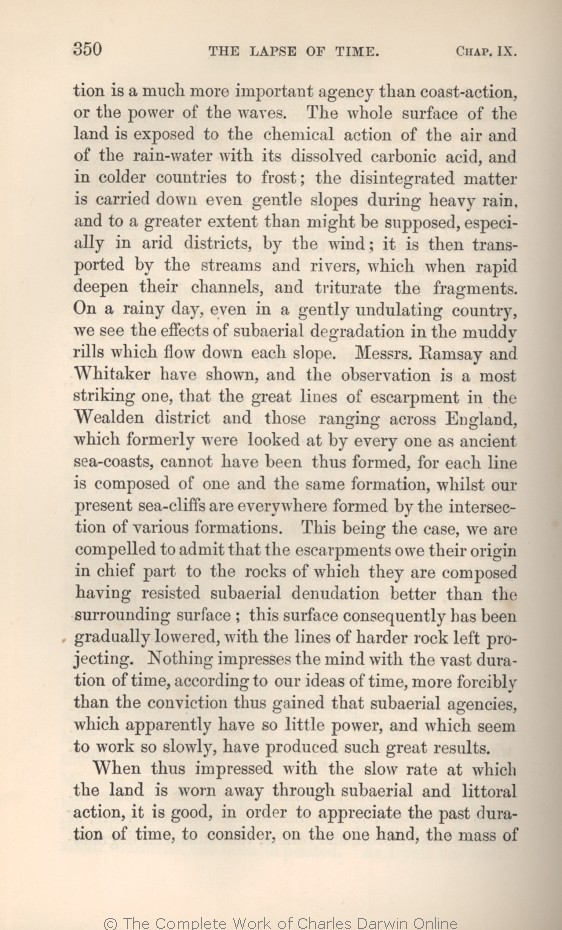is a much more important agency than coast-action, or the power of the waves. The whole surface of the land is exposed to the chemical action of the air and of the rain-water with its dissolved carbonic acid, and in colder countries to frost; the disintegrated matter is carried down even gentle slopes during heavy rain, and to a greater extent than might be supposed, especially in arid districts, by the wind; it is then transported by the streams and rivers, which when rapid deepen their channels, and triturate the fragments. On a rainy day, even in a gently undulating country, we see the effects of subaerial degradation in the muddy rills which flow down
each
slope. Messrs. Ramsay and Whitaker have shown, and the observation is a most striking one, that the great lines of escarpment in the Wealden district and those ranging across England, which formerly were looked at
by every one | by every one 1869 |
| OMIT 1872 |
| agencies, 1869 | | agencies 1872 |
|
|
| When thus impressed with the slow rate at which the land is worn away through subaerial and littoral action, it is good, in order to appreciate the past duration of time, to consider, on the one hand, the
mass
of
|









